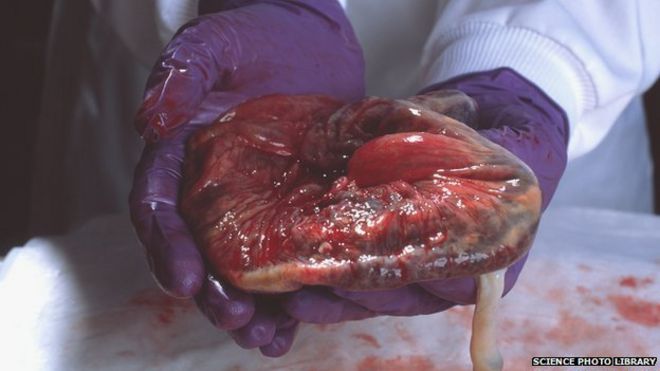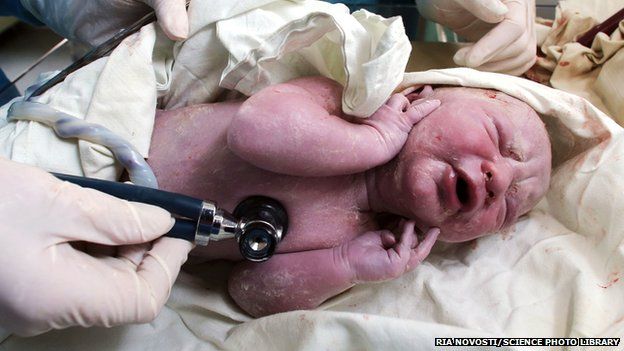EATING PLACENTA DOES NOT BENEFIT HEALTH
There is no scientific evidence that eating the placenta after childbirth can protect women against depression and boost energy, US research suggests.
Claims that the placenta contains vitamins
which could benefit a woman's health have increased interest in the practice in
recent years.
But a review by Northwestern University
found no proven benefits and no research on the potential risks.
The Royal College of Midwives said it
should be the woman's choice.
The researchers said the popularity of
eating placentas had risen in the last few years but this may have been due to
women being influenced by media reports, blogs and websites.
Their review, published in Archives of Women's Mental Health, looked
at 10 published studies related to placenta eating.
Women
should be aware that like any foodstuff, placentas can go offLouise Silverton,
Royal College of Midwives
But it could not find any data to support
the claims that eating the
placenta raw, cooked or in pill form carried any health
benefits.
Placentophagy, as the act of eating
placentas is known, has been said to reduce pain after delivery, increase
energy levels, help with breastmilk production and enhance bonding between
mother and child.
Some are also convinced that it replenishes
iron stores in the body, but the research team said this was based on
subjective reports rather than scientific research.
The review also said there were no studies
which looked at the risks of eating the placenta.
The organ acts as a filter to absorb and
protect the developing foetus from toxins and pollutants.
As a result, the scientists said, bacteria
or viruses could remain within the placenta tissues after birth.
Lead study author Cynthia Coyle, a clinical
psychologist at Northwestern University, said: "Our sense is that women
choosing placentophagy, who may otherwise be very careful about what they are
putting into their bodies during pregnancy and nursing, are willing to ingest
something without evidence of its benefits and, more importantly, of its
potential risks to themselves and their nursing infants.
"There are no regulations as to how
the placenta is stored and prepared, and the dosing is inconsistent.
"Women really don't know what they are
ingesting."
Louise Silverton, of the Royal College of
Midwives, said there was not enough evidence for them to be able to advise
women about eating their placenta.
"It must be the woman's choice if she
chooses to do so.
"Women should be aware that like any
foodstuff, placentas can go off, so care will be needed about how they are
stored."
She added: "If woman is intending to
do this, they should discuss it with their midwife ahead of the birth so that
arrangements can be made to ensure she gets her placenta."
Dr Daghni Rajasingam, spokesman for the
Royal College of Obstetricians and Gynaecologists, said although the placenta
is very rich in blood flow, there were potential risks to ingesting it.
"What women do with their placenta is
up to them - but I wouldn't recommend they eat it."
BBC


Comments
Post a Comment